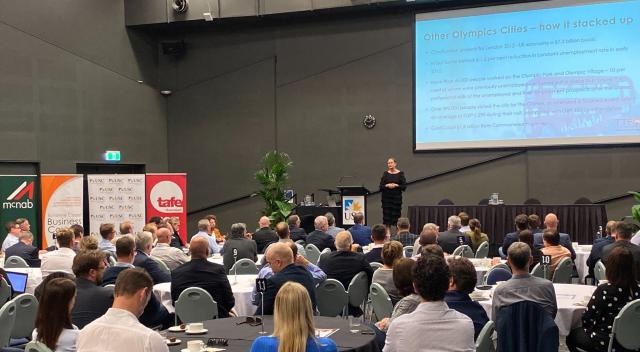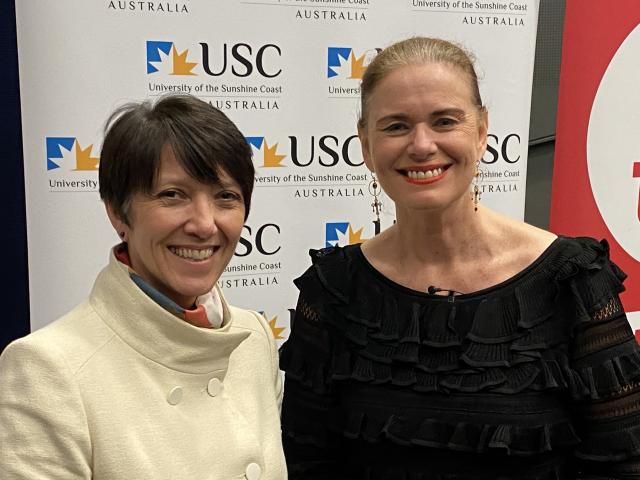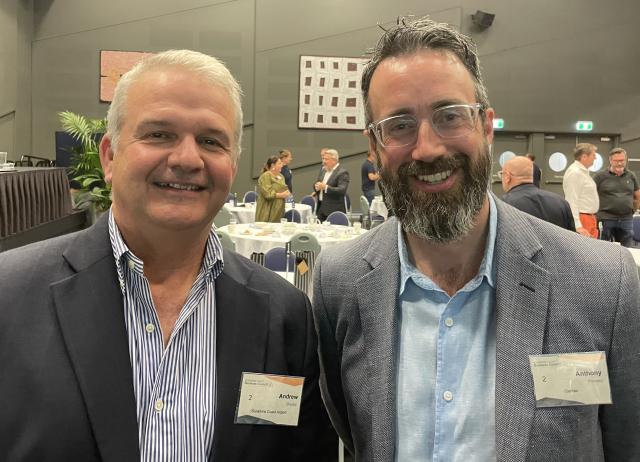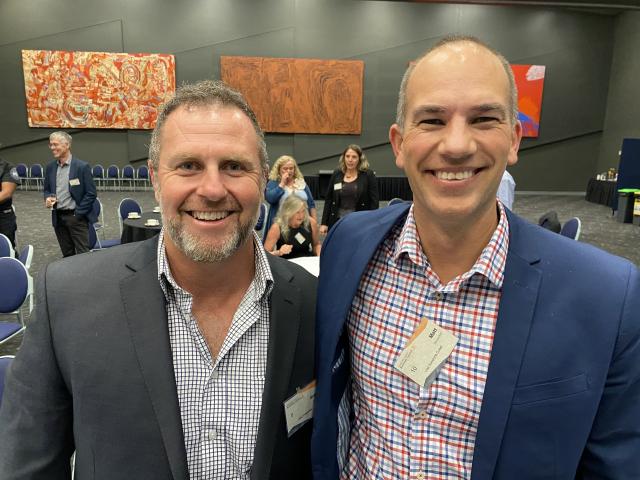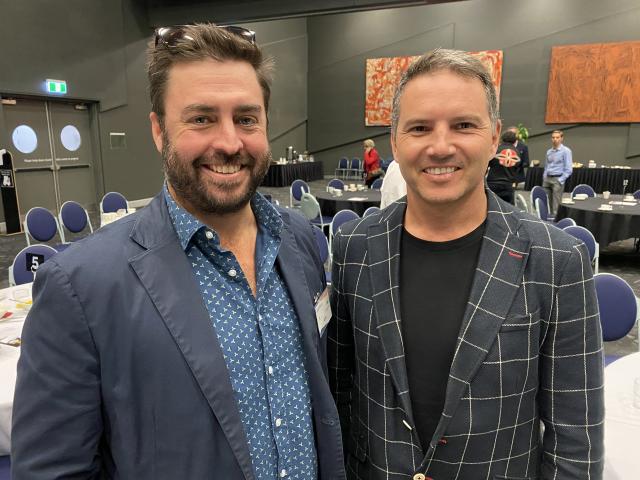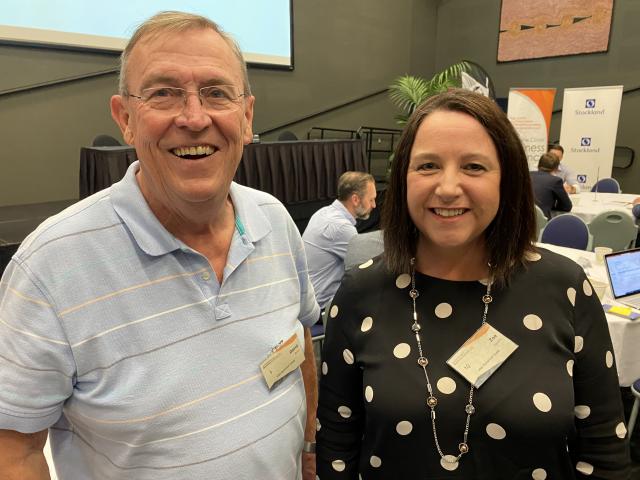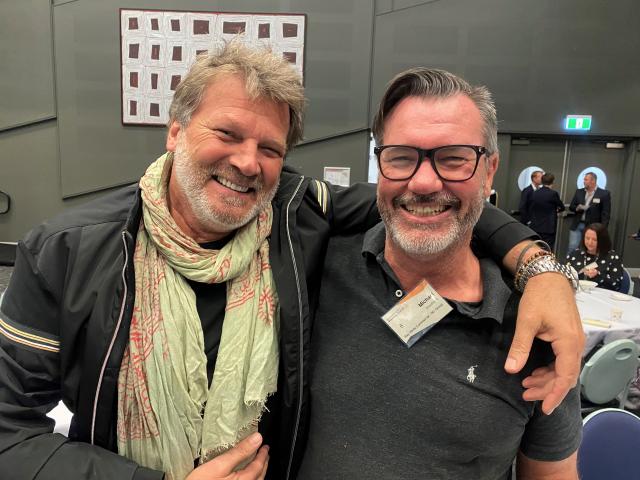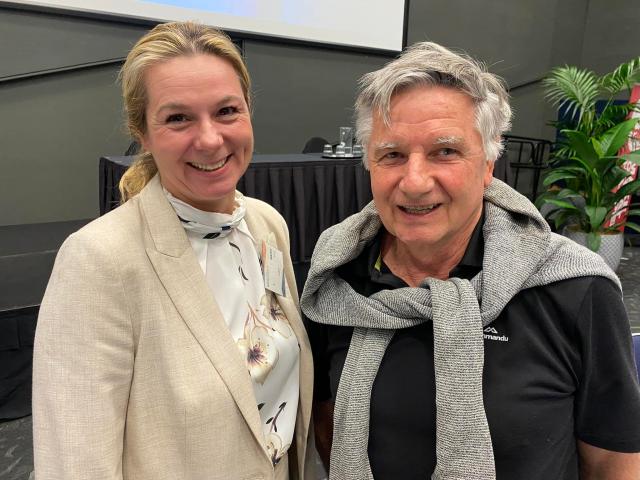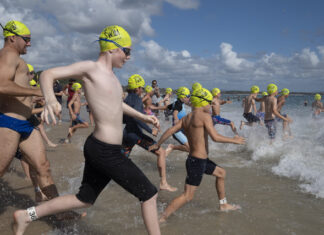Planning for the 2032 Brisbane Olympic Games and Paralympic Games starts now. Not in four, six or eight years time.
And we have to get this right.
That is one thing Sydney learned after the 2000 Olympic Games, regarded as one of the most successful events of its type in the history of the modern games.
Sydney only got serious four years before the Games.
London, worked together as a team for the 2012 Olympics and found that in doing so people travelled further and enjoyed the experience better.
The 2032 Summer Games, to be based in Brisbane, Gold Coast, Ipswich and the Sunshine Coast, will see events also being held throughout the state as well as Victoria and New South Wales.
It is the chance to provide a lasting legacy for generations to come.
Yet it is a matter of collaboration instead of self-interest, a chance to engender a mind-set of contribution rather than expectation.
Sunshine Coast Business Council hosted the Sunshine Coast Regional Tourism: Preparing for 2032 conference at the University of Sunshine Coast.
A panel of leading tourism and infrastructure planning experts discussed the Sunshine Coast’s readiness to tackle the challenges and make the most of opportunities the 2032 Olympic and Paralympic Games will bring to the region.
The conference was aimed at bringing clarity to the opportunity, the need and the challenges of what it will take to build the capacity, capability and quality in hospitality services across the Sunshine Coast in the lead-up to the Games.
More than 100 business and tourism leaders attended to learn from the lessons of the 2000 Sydney Olympics and more recently London, thanks to Tourism & Transport Forum (TTF) chief executive officer Margy Osmond’s experience in the Sydney 2000 Olympic and Paralympic Games and International World Masters Games.
Urbis director Kate Meyrick stressed the need to activate a vibrant tourism region – not one that was based on any other place in the world but one that distinctively told an authentic story of the Sunshine Coast’s culture.
Other speakers included Visit Sunshine Coast chair, David Ryan, Tourism and Hospitality Services AustralAsia managing director, Rodger Powell, and Transaction Services Hotels Colliers national director, Karen Wales, with closing comments by Sunshine Coast Council’s Economic & Community Development group executive, Greg Laverty.
For Margy Osmond, it was a matter of outlining the planning and decision-making processes required for hosting an Olympic scale event.
This was particularly in regard to the transport and connectivity challenges an event of this scale can bring to a region and particularly how the small business community can plan and benefit in the lead up to the Games.
“With the Sunshine Coast’s population estimated to grow by nearly three percent annually over the next 20 years, the seamless delivery and movement of tourists within the region will be key.
“We need to start as early as possible – while 2032 seems a long way off, it will be here in the blink of an eye.
“The run-up to the Games has as much benefit as the event itself.
“This is not just about Queensland but the rest of the country. Don’t become complacent and expect it to happen… include the rest of Australia.’’
Ms Osmond said it was important not to think only in the dollars but the legacy the Games would bring in the lead-up and then for the next 20, 30, 40, 50 years.
The London Games provided the most extraordinary opportunity to shine a light on what makes Britain great, in order to generate long-term economic events.
“There was a massive boost to construction and employment,’’ Ms Osmond said.
“The benefits are only limited by your vision.’’
The good, the bad and the ugly needed to be considered and worked through with a regional Olympic commerce committee to get people to understand what the Games can bring and avoid the pitfalls.
The cost and the local congestion were obstacles. Yet the threat of unused stadiums afterwards that had plagued some cities, would not be a problem. This was due to the popularity of sport and holding such an event in Australia.
The benefits would be the long-term investment in infrastructure, the opportunity to see the region for what it is.
The Olympics will deliver the Sunshine Coast brand to the world.
“Many businesses think they can simply make money,’’ Ms Osmond warned, “yet Sydney had to understand about supply chains.
“Like Covid – it stretches from bottled water to toilet paper.
“This is an opportunity to service the locals as well as the visitors.’’
Ms Osmond said the level of planning included not just ensuring the infrastructure for the rail network to cope with demand but the need to reschedule the whole network.
“Things that might not seem obvious,’’ she said, “but there will be freight crossing over with people.
“The railways will be moving goods as well as passengers.’’
It was important to make sure the benefit to the region was not for the couple of weeks of the Games … teams will come in a couple of years before to prepare and there will be people moving here from interstate and internationally.
Sporting facilities and transport infrastructure will all need to be in place.
“Think about what the region will be like in 10 years time,’’ Ms Osmond said.
“Will we all be getting around on electric scooters?
“This is a once-in-a-lifetime event.’’
In awarding the Games to Brisbane and South East Queensland, the International Olympic Committee has come to grips with the fact the world has changed.
Sustainability is the key word and Queensland, as well as venues throughout Australia, have 80 per cent of facilities already in place.
“The sooner you start working towards this, the better placed you will be.
“Just like in Sydney, there is a magic moment when everyone realises this is amazing, this is wonderful.’’
Fisher MP Ted O’Brien said Sydney was was regarded as one of the best games ever.
Yet there was one thing they didn’t do and that was not start getting organised early enough.
“They started four years out, but they should have started now (10 years).
“We need to start the conversation much earlier. Make it clear about the urgency.’’
This required endless training and education programs, as well as information sessions and some great opportunities to think about sustainability.
Sunshine Coast Airport chief executive officer Andrew Brodie said it was important the region talk with one voice even though it is a group of villages.
This was why a hub was needed as opposed to a variety of power structures.
It would stimulate interest in other areas and create one voice, not a wall of noise.
David Ryan said the Sunshine Coast had a relatively short window of opportunity to build on the natural strengths and create infrastructure to drive the region’s tourism economy forward.
“There are crucial infrastructure decisions needed to be made about access, attractions, activities, amenity and accommodation that can both meet the needs of a rapidly growing population and an increasingly competitive tourism market.”
He warned the Sunshine Coast was dramatically under-supplied with suitable accommodation but that building hotels specifically for the Olympics was a recipe for disaster.
The right approach was needed to provide a legacy for business and tourism now and for the future, not just for the two weeks of the Games.
That should be the springboard to what comes after, with proper planning needed to prepare for the event.
After all, if you don’t own the future someone will do it to you.
Mr Ryan said the Sunshine Coast would have to compete with other regions for visitors.
Few know of the Sunshine Coast, most have not heard of Queensland, not many can tell where Australia is.
“The destination needs to come together as one – that includes Noosa, Cooloola, Gympie and the Mary Valley.
“To stay as we are, decline will become an outcome. While it can be difficult to change, if managed well it will be beneficial.’’
The UNESCO biosphere announcement, recognising the natural amenity of region, was incredibly important, he said.
“Everyone can have natural amenity, but you need to realise that.
“We have a carbon-neutral airport, universities that supply excellence in sustainability – there are incredible investment opportunities in that.
“You have this in your hands. If it can be employed it will be a very powerful advantage.’’
An indication of the timeline needed was provided by Sunshine Coast Council’s Greg Laverty.
The region will host nine sports – from the marathon to road and mountain bike cycling, from kite boarding to lead-up games for football and basketball.
Training camps will be set up four to six years out from 2032.
“There are some great opportunities,’’ he said.
“We are already receiving requests for international and national bodies to hold events here.’’
Imagine marathon runners from Kenya being based on the Sunshine Coast for two years as their training camp. Or the best cyclists in the world descending on the hinterland for preparations for the mountain biking.
The most popular sport in California’s Silicon Valley is kite boarding. Imagine the advantage of the Sunshine Coast hosting that event as well as having the undersea coaxial cable linking the new Maroochydore central business district with the Pacific nations.

